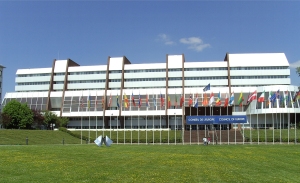A strategy to combat discrimination
[originally published in qceablog.wordpress.com]
The Council of Europe (CoE) is a European institution focussed on promoting and facilitating human rights, democracy and the Rule of Law. It has many more member states -47- than its cousin the European Union (EU). The CoE in fact includes all the EU Member States. All these countries have signed theEuropean Convention on Human Rights (ECHR), the implementation of which is overseen by the European Court of Human Rights. The EU as a whole is also preparing to sign ECHR, in addition to its own Charter of Fundamental Rights.
Parliamentary Assembly of the Council of Europe
The Council of Europe is made up of several parts. The largest part is an assembly of 318 national parliamentarians, the Parliamentary Assembly of the Council of Europe (PACE), which meets in Strasbourg, France, four times a year. Eight hundred million people who are citizens of European countries are represented in the PACE, and other countries have observer status, including Canada and Israel. In addition to debating issues and election monitoring, the Assembly elects the Secretary General of the Council of Europe, the Human Rights Commissioner, and judges to the European Court of Human Rights. PACE may also investigate human rights violations, question government officials including presidents and prime ministers, observe elections, request legal opinions on legislation in member states, and suspend or exclude member states.
The PACE does not pass laws but makes non-binding recommendations, and a response is then expected from the Committee of Ministers, made up of foreign affairs ministers or permanent representatives from all 47 Member States. Despite this apparently indirect role, the debates, reports, and recommendations of the PACE are major factors that affect law and people’s lives in Europe.
Tackling hate speech and discrimination
QCEA is one of the non-governmental organisations (NGOs) accredited to the International NGO forum of the Council of Europe. We thus have the opportunity to observe the PACE and to participate in the civil society input into the Council of Europe. This week, PACE is gathered in Strasbourg, and a number of resolutions on human rights are on the agenda. Yesterday, the PACE passed a recommendation calling for a coherent strategy against hate crime and racism, and one calling for measures to address racism within police services. Both passed with near unanimity. As one of the parliamentarians noted, we have to show that a society without racism is possible and desirable.
Defining what we mean
During the debate, however, it was quite clear that, although all parliamentarians were discussing some kind of discrimination, they did not share the same definition. The Canadian observer spoke about challenges with regard to rectifying history for aboriginal people: the absence of any mention of other types of discrimination could lead one to think this is the only problem in Canada. Greece’s neo-Nazi Golden Dawn was mentioned a few times, but one surprising connection made was a statement that low pay was the reason many Greek police had joined Golden Dawn. (If this is the whole reason, then we already know the solution to finally eradicating extreme right movements!)
A Dutch member of the Party for Freedom, a nationalist far-right party, spoke at length about the dangers posed to Western culture by ‘Islamisation’ – although the rapporteur noted during his summary that this type of attitude was exactly what was no longer acceptable. A Russian parliamentarian spoke about how Russia has for centuries been multi-cultural (multi-national may not be the same as multi-cultural, in which all cultures are respected). Only a single parliamentarian (from Georgia) mentioned the recent Russian law prohibiting ‘propaganda’ by gay people. And that was mentioned in the context of the increasingly confrontational stance of Russia vis-à-vis the EU and the stoking of anti-EU sentiment among some populations by their politicians.
Many people spoke only about the rights they imagined were being taken from their own group, especially in Azerbaijan and Armenia, Georgia and Russia. One speaker stated ‘a few years ago, it was the Jews, now it is the Muslims’ – but the recent EU Fundamental Rights Agency report shows that a quarter of European Jews have experienced anti-Semitic harassment in the last year. The problem is certainly not only one of the past.
There were some surprising assumptions behind the contributions to the debate: one is that education is important in changing attitudes towards other groups. Awareness and discussion can certainly change attitudes, but one comment assumed that people who have more education are inherently less racist. This is a type of stereotyping itself. Studying at an institution of higher education does not in and of itself cause someone to be less racist.
Another stereotyping attitude was reflected in a call for the permanent exclusion from the police force of those who had violent attitudes in school. It is important that police should be able to control their own violent impulses, but it is a form of discrimination to assert that people who come to attention for violence when they are school children should forever be excluded from a certain profession. It goes against the concept that people can change, that the past does not define the present, and assumes that a criminal will always be likely to commit crimes, that there can be no restorative justice, no change, no evolution in society.
The steps taken yesterday by the parliamentarians who participate in the PACE are in the right direction. Proposals regarding the police were detailed, but will not be as effective as they could have been because they did not take full advantage of experience across Europe in recent years. Finding a coherent strategy is essential: developing a coherent view of what discrimination means will be the crucial first step to implementation.


Leave a Reply